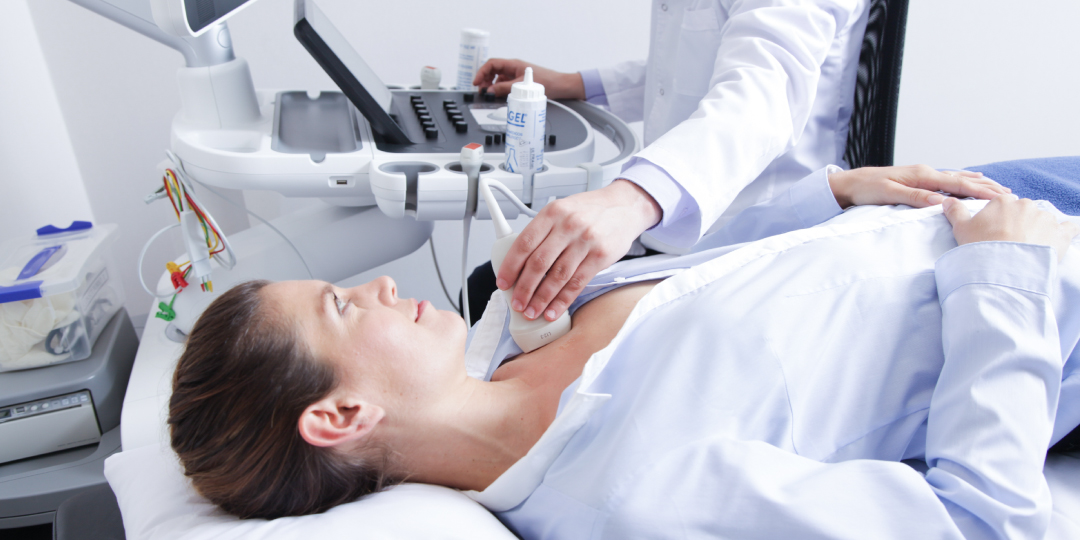The prospect of getting a heart ultrasound can leave many Americans feeling queasy and weak-kneed, but the sooner you act, the better your chances.
So, why would a doctor order an ultrasound of the heart? That’s what we’re here to answer!
Understanding Ultrasounds
Also known as sonograms, ultrasounds are a type of imaging technology used by the medical profession. The technology uses high-frequency sound waves to create images of internal body structures.
Unlike an X-ray, ultrasound doesn’t involve radiation, making them safer for all patients. This is one of the reasons ultrasounds are used during pregnancy.
To understand how ultrasounds work, think of bats.
Bats use echolocation to navigate by emitting sound waves that bounce off objects and return to them. In an ultrasound, a transducer emits sound waves that travel through the body, bouncing off organs and tissues.
How does this relate to heart health?
Ultrasounds provide detailed, real-time images of the heart’s structure and function. They’re a valuable tool for distinguishing between a healthy heart and a heart with cardiovascular problems.
How Ultrasounds Assist Heart Health
Your heart is one of your most important organs, and doctors use a variety of medical tests to learn more about its condition. An ultrasound of the heart, also known as an echocardiogram, holds significant importance for heart health.
An echocardiogram allows doctors to visualize the heart in motion. It can show the size of the heart, the thickness of the heart walls, and the efficiency of its pumping action. This information is vital in detecting abnormalities—heart valve diseases, heart failure, and congenital heart defects are all examples.
An ultrasound is a non-invasive and painless procedure, making it a safe, preferred choice for doctors and patients alike. But when would a doctor order an ultrasound of the heart? Let’s delve deeper.
Why Would a Doctor Order an Ultrasound of the Heart?
An ultrasound of the heart is a diagnostic tool, not a diagnosis. While a heart ultrasound can be performed in a hospital, many primary care providers offer the service in-office.
Typically, a doctor will recommend an ultrasound if you’re experiencing symptoms that point toward heart problems. Unexplained shortness of breath, chest pain, and dizziness all suggest your cardiovascular system may not work as it should.
Echocardiograms are also common as a precautionary measure. If you have a family history of heart disease, an ultrasound of the heart makes sense. Similarly, if you’re at high risk due to factors like diabetes or obesity, your doctor may recommend one.
Should you have already been diagnosed with a heart condition, regular ultrasounds can monitor the effectiveness of treatment. They can also assess the level of risk before invasive procedures, such as heart surgery.
Types of Ultrasounds of the Heart
The term “ultrasound” is used widely. For the heart, there are several types of ultrasounds that each serve a different purpose:
- Transthoracic echocardiogram (TTE)
- Transesophageal echocardiogram (TEE)
- Stress echocardiogram
- Fetal echocardiogram
A TTE is the most common type of heart ultrasound. It’s the standard procedure that may be followed up with another echocardiogram.
A TEE may be used if a TTE doesn’t provide conclusive results. It involves inserting a special transducer down the esophagus (gullet) to get more detailed images of the heart. Typically, it’s used to examine the aorta – the body’s main artery.
Stress echocardiograms observe how a patient’s heart functions under pressure and how it reacts to physical exercise. Usually, these are done before and after a period of intense exercise, such as by running on a treadmill.
Fetal echocardiograms are commonly performed during pregnancy to check on a baby’s heart. A fetal echocardiogram is the sort of heart ultrasound you’ve seen portrayed on pregnant women in movies and medical dramas.
What To Expect From an Ultrasound of the Heart
Feeling anxious before getting an ultrasound is normal, but knowing what to expect will help alleviate your nerves.
Overall, the process is straightforward.
First, you’ll be asked to lie down. Then, a special gel will be applied to your chest. This gel ensures good skin contact and helps the transducer glide smoothly.
The sonographer will move the transducer around your chest to capture images of your heart from different angles. The process is painless and typically takes between 30 and 60 minutes from start to finish.
How To Maintain a Healthy Heart
In all matters of health, prevention is better than cure. Frequent medical check-ups can identify and tackle problems early, yet there is no magic pill for heart health. Maintaining a healthy heart is a lifestyle choice involving a balanced diet and regular exercise.
Harmful habits like smoking and excessive consumption of alcohol and junk foods can significantly impact heart health over time. Substantial mental stress can increase blood pressure, putting more strain on your heart to keep your blood flowing.
Cutting unhealthy habits, exercising regularly, and finding ways to manage stress and maintain a positive mental outlook all help to keep your heart healthy.
A Heart Ultrasound Is Nothing To Fear
Heart health should never be taken likely, and regular check-ups are part of an early detection strategy for managing heart conditions. An ultrasound of the heart is a powerful tool that provides detailed images of the heart’s function.
So, why would a doctor order an ultrasound of the heart?
Simple: It’s a safe, non-invasive, comprehensive way of assessing heart health.
Hillcroft Physicians has provided patient care in Houston for 25 years. As a primary care provider, we offer comprehensive services across a wide range of specialties with same-day appointments five days a week. Click here to book an appointment.


